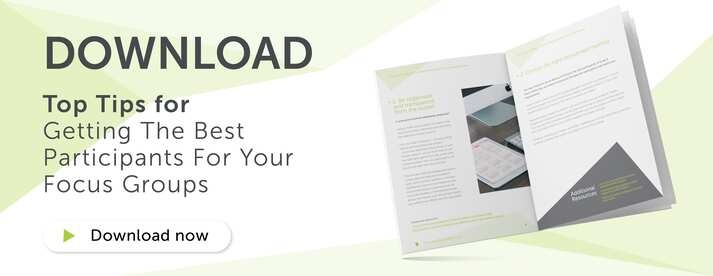
Why is diversity so important in market research?
Pepsi, Dove, ASOS... What do all these companies have in common? Well, they’ve all made some pretty big and most definitely avoidable mistakes when it comes to diversity and inclusion. Such culturally insensitive mistakes usually end up with a huge backlash from customers, and the subsequent PR clean-up campaign is always a nightmare. The saying might well be that all press is good press, but let’s face it - no one really wants to be known for a lack of diversity and cultural awareness. So what’s the solution? Well, by ensuring your campaigns are inclusive, you can actually end up avoiding costly mistakes in the first place - and it all starts with diversity in research.
Why diversity is so important
Diversity originates from the word diverse, meaning difference. It comes in many forms: gender, race, religion, sexual orientation, age, culture, socioeconomic background - and all of these things contribute to an individual’s unique experience of the world. In a nutshell, diversity and inclusion are so important because it’s about respecting and appreciating differences. It ensures everyone’s voice is heard, and that their opinions are respected and taken on board, giving brands the ability to communicate with all of their customers, no matter who they are. As such, it’s a huge driver of business success and innovation, and without it, brands can end up in serious hot water - and may even get known for all the wrong reasons.
It’s time to take action
The time to talk about diversity is over. Instead, it’s time to take action - and supermarket giant Sainsbury’s are a fantastic example of a brand leading the way and being proactive about diversity. Sainsbury’s pride themselves on being an inclusive retailer and as a result have a workforce that’s representative of the UK population. They also have a number of schemes and mentoring programmes that help underrepresented colleagues achieve and progress, as well as internal support networks such as their LGBTA colleague network too.
Other, well-known brands such as H&M and Starbucks have also recently taken steps to show their customers that they are taking diversity and inclusion seriously, albeit in a more reactive manner. H&M recently appointed a Global Diversity Leader after a fashion fiasco that received huge backlash, whilst Starbucks closed more than 8,000 of its US stores to educate its staff on racial bias after a heavily publicised incident in Philadelphia. When it comes to diversity the message is clear: diversity and inclusion should no longer be afterthoughts.
Diversity in market research
That’s exactly why it is so important to ensure you have diversity in research - so you can be completely confident that all ages, genders, sexualities, nationalities and religions are equally represented by your brand. After all, there’s no single image of what a typical customer looks like. The population is so diverse, and in today’s world, it’s more important than ever to make sure your brands’ campaigns resonate with everyone, no matter who they are. When it comes to market research recruitment, it’s important to actively onboard respondents from diverse perspectives and not exclude those who think in another way or ostracise those who might have different opinions.
Whether you are testing marketing campaigns, need feedback for product launches or want to understand product usage, diversity in market research can help to ensure you really get to grips with customer behaviour and understand why your consumers think and act the way they do. It can have an incredibly positive effect: Mars revealed that it grew its Maltesers brand by 8% after launching three adverts focused on disability last year, claiming it was the single most successful campaign for the whole brand in more than a decade.

How Angelfish can help
At Angelfish, we take the time to really understand the brands we work with so we can find high-quality participants for their market research. We’ll really get to know the objectives of your study, what you are trying to achieve and why, before carrying out completely bespoke and targeted recruitment campaigns designed to source the best possible participants and deliver real diversity in research. Got a market research study coming up? Get the peace of mind that your fieldwork is being conducted to the highest possible industry standards with Angelfish. Want to find out more? Let’s talk!
In the meantime, why not download our free guide on how to get better results from your qualitative research? From briefing to validation tips, it’s full of advice to help you get the most out of your project.



-Feb-19-2026-09-59-49-0345-AM.png)










